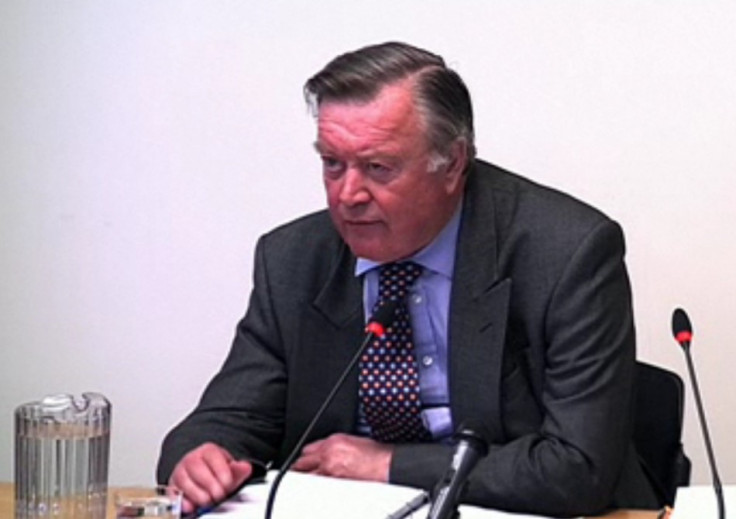Ken Clarke Tells Leveson Inquiry British Press More Powerful than Parliament
Justice secretary Ken Clarke tells phone-hacking probe of time journalists tried to bribe his local bank's staff to get his account details

Britain's press holds the sway of political power in the country, the government's secretary of state for justice told the Leveson Inquiry into press ethics.
"The power of the press is far greater than the power of parliament," Ken Clarke told Lord Justice Leveson.
"When I entered government the power of parliament was far greater than the power of the press.
"Politics now is a mass-media dominated activity, so is government.
"I'm not sure we've learnt how to handle it."
He added that he thought the power of the media "has grown, is excessive, and ought to be diminished", though he conceded that he wants a "free media" that can effectively scrutinise elected representatives.
Clarke, a Conservative who has been in politics for over 40 years in a variety of frontbench positions, said that sometimes governments were swayed on policy by fear of the media reaction.
"[The media] can drive a weak government like a flock of sheep before them", he said, though this is in non-media related policy, such as social issues.
In a warning to Leveson, who is leading the inquiry, Clarke said he must expect criticism from all sides when he makes his final recommendations at the conclusion of the inquiry.
The Leveson Inquiry was opened by the government to probe press ethics and regulation following the phone hacking scandal and outcry over the way sections of the press treat the subjects of their journalism.
Leveson has heard evidence from a wide range of participants, from the families of murder victims, to harassed celebrities and politicians, as well as members of the press themselves
Clarke revealed that he was forced to change his bank details after journalists acquired them by bribing the staff in his local branch while he was chancellor of the exchequer in the mid-nineties .
It was "terribly easy" to do so, he said.
The Operation Motorman files, a dossier compiled in a police probe that reveals the extent to which private investigators have been used in recent years to glean information and data on behalf of journalists, shows the "startling" scale of the practice, Clarke said.
"Motorman showed this has grown into a profitable, large industry," he said.
"The scale has shocked me. I had no idea it was going on in this monumental scale."
One of the biggest fears over the use of private investigators is the potential for the breach of data protection laws and the exposure of people's personal information to those with no right to view it.
Clarke said he does not favour a public interest defence for data protection offences, which does not currently exist, being written into the law.
He did say that there could be a viable public interest defence in some cases, such as the exposure of wrongdoing such as the MPs' expenses scandal, and that he would not seek to prosecute journalists in these situations, but that he does not favour a general public interest defence for reporters.
Earlier in the day Vince Cable, the business secretary, gave evidence to Leveson.
Cable was pressed on his comments to undercover reporters in 2010 that he has "declared war" on media mogul Rupert Murdoch over the BSkyB takeover bid by the Murdoch-owned News Corporation.
He was operating in a quasi-judicial role at the time and was judging whether or not to allow the bid to go through.
His comments ran in a Telegraph article and Cable was stripped of the decision-making role over the bid amid accusations of bias against Murdoch.
Cable said he was in a "tense and emotional frame of mind" when making the comments to the undercover journalists, who were posing as his constituents, because of an earlier confrontation with protestors outside his office that left him "struggling to keep my temper".
"More seriously, I had heard directly and indirectly that there had been veiled threats that my party would be done over in the [Murdoch owned] News International press," Cable told Leveson.
"I took those things seriously and I was very concerned."
© Copyright IBTimes 2025. All rights reserved.






















